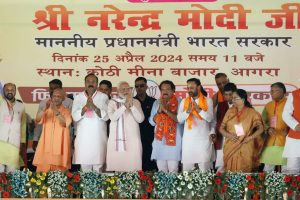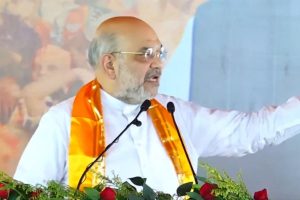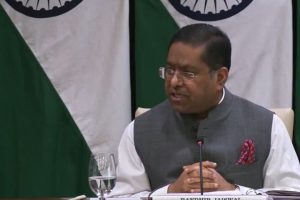Describing the retributive actions, or surgical strikes, across the Line of Control as “business as usual” for the defense forces, some decorated war veterans on Friday cautioned against politicisation of the Army.
Participating in the first session on ‘Role of Cross Border Operations and Surgical Strikes’ during first day of the Military Literature Festival (MLF) 2018, the war veterans said the September 2016 ‘Surgical Strikes’ were unnecessarily hyped by the Centre to garner political mileage, endangering India’s future defence cross border responses to inflict enemy damage.
Former Northern Command Army Commander Lt General DS Hooda said it was natural to have initial euphoria about the success but the constant maintenance of hype around the military operations was unwarranted. Responding to a question from the audience, Lt Gen Hooda, who was the Northern Army Commander during the surgical strikes carried out in September 2016, said it would have been, in hindsight, better if the surgical strikes were done secretly.
The aim of any such offensive had to be not only tactical but strategic too, which substantially hampers enemy morale, Hooda said, adding that he could not say with certainty if India had actually achieved that objective in full measure.
During the discussion, defence commentator Colonel (retd) Ajai Shukla cautioned against the recent trend to colour military achievements with political motives. He also underlined the need to maintain operational decency and sanctity of the operations undertaken by the defence forces.
The excessive publicity of the September 2016 strikes, which had in fact been a reactionary strike conducted after the Pathankot and Uri attacks on the Indian Army, had set a dangerous benchmark for the Indian political dispensation, which they would find difficult to maintain in the eventuality of future terror attacks, he said.
Success has its burden, Colonel Shukla said, adding that Pakistan had in fact been emboldened by the strikes as they knew now that the Indian government would be always be under immense pressure to strike across the border after each terror attack.
In response to a question, Colonel Shukla said it was only wishful to assume that the strikes would have any deterrent effect on Pakistan or push it to alter its terror policy against India.
Before September 2016, the Indian forces in Jammu and Kashmir had suffered significant losses and this had led to a confluence of thought between the political class and the defence establishment, he said, adding that in more than one way, both needed some action across the line of border.
Citing the example of the 1981 Israeli air strikes on Iraqi nuclear sites, which had caused considerable damage, LT. General (retd.) NS Brar underscored the need to ensure long-term impact on the enemy before undertaking any such operation in the future. Lt Gen JS Cheema, said it was too simplistic to assume that Pakistan would rethink its course of action against India after the much advertised surgical strikes.











